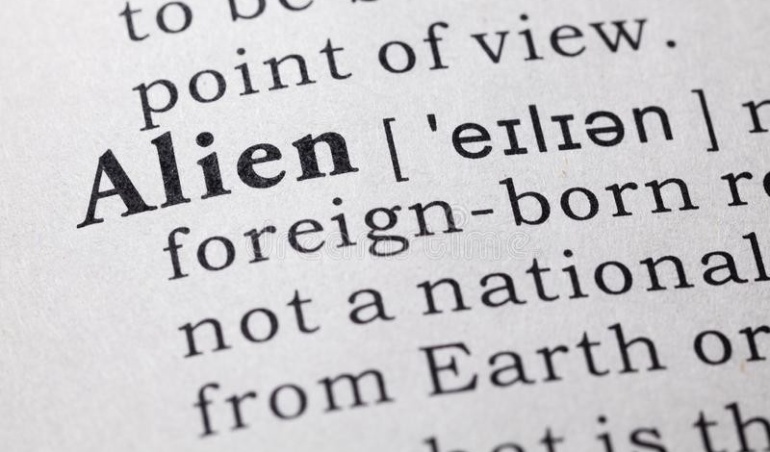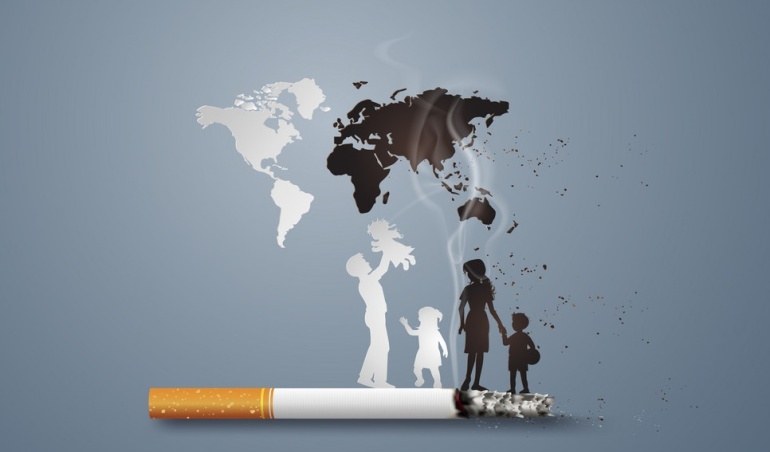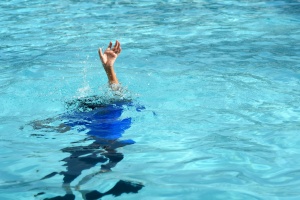OVERVIEW This presentation introduces the fundamental elements of sentence construction to help learners write with clarity and variety. It…

Imagine traveling to the future and finding that some countries ceased to exist,
replaced by seawater, and forgotten, several animals went extinct, ecosystems
vanished, and our fellow humans are skinnier than normal.
That could be the case if climate change continues to be prevalent. Climate change has been subject to debate for many years, and it will remain for years to come. Although its consequences are becoming more and more tangible, some still consider it not to be a threat. However, the real case is that scientists have been sounding the alarm that climate change is still the number one threat to humans and all ecosystems.
Climate change is as old as human activity. Yet, we have only come to notice it over the last century. Scientists conducted their research and concluded that earth’s temperature is gradually rising due to the greenhouse effect. As a result, many summits were held in recognition of the issue.
Climate change is a threat based on several visible and plausible negative impacts. Lately, the world has been experiencing severe heatwaves that resulted in droughts and several deaths across the world, from January through August. The most notable heatwave in 2022 is that of China; with scorching temperatures exceeding 40 °C, at least 17 provinces were affected and suffered from water shortages and crop losses. Also, warmer weather is an ideal environment for mosquitos and ticks to breed; these insects being natural carriers of disease will increase the risk of transmitting various dangerous infectious diseases, such as Malaria and Dengue fever. Moreover, climate change is causing sea ice and glaciers to melt affecting wildlife and altering normal ocean circulation. In fact, scientists predict that two-thirds of the polar bear population will go extinct by the year 2050 due to climate change.
On the other hand, some do not label climate change as a threat. They argue that climate change is a normal phenomenon that occurred at certain points in history; the ice age, for example. And, that animals, plants, and eventually humans would adapt according to the natural selection theory. Although these claims have some truth to them, but whenever climate change happens, mass extinctions and serious environmental catastrophes also take place. Not only it endangers the environment but it has also been proven that it takes its toll on mental health. That and many more repercussions qualify climate change as a threat of utter significance.
To sum up, it is hard to deny that climate change is a pressing matter with regard to the events that we have witnessed in recent years; droughts, heatwaves, typhoons, hurricanes, etc. It is not a simple issue that we can turn a blind eye to. Thus, solutions must be put forward and implemented to prevent further consequences. As American physician-scientist, Kari C. Nadeau, said: “This is in our hands to do if we don’t do anything, that would be cataclysmic.”
Wydad Madani
Semester 3, Department of English Studies
Chouaib Doukkali University, El Jadida

It is said that the early bird catches the worm; but does that apply to university students?
As we all know, schools and universities all over the world start generally between 8:30 and 9:00 AM. Throughout our academic journey, all of us had to wake up and get ready at least an hour before 8:30AM for our classes. However, as we get older, our sleeping schedule becomes irregular which results in many complaints coming from university students stating that late classes are far more convenient and beneficial than early morning classes.
A study conducted in 1998 by Dr. Wolfson and Dr. Carskadon says that university students who reported poor grades claimed to be getting 25 fewer minutes of sleep than the students who reported getting higher grades. Another study from the University of Minnesota confirmed that later school start times can have a positive effect on academic performance. Investigators studied two school districts that changed their start times to 8:30AM and 8:40AM. When compared with students attending schools with earlier start times, the students reported getting higher grades. They also had fewer depressing feelings, got more sleep on school nights and had less daytime sleepiness. In addition, a recent study from RAND Europe shows that delaying school start times is cost-effective. Results suggest that starting school later could have a positive impact on the country’s economy.
All of the above mentioned studies confirm the link between later school start times and better grades, higher test scores, improved focus among university students, as well as a positive impact on the country’s economy. That’s especially important because discipline problems may lead to suspension, which is associated with a wide range of negative health and economic outcomes and is a major cause of educational inequity.
However, with all of these advantages that are definitely valid, some drawbacks cannot be ignored. For example, transportation challenges. Later start times will likely mean more buses on the road later in the day, this could create more traffic and increase travel delays. Furthermore, students who have part-time jobs may have scheduling conflicts as a result of this, which can lead to poor attendance and therefore poor grades.
Overall, later start times for universities can be a double edge sword since it improves students’ academic performance but it can create some transportation and work schedule conflicts as well. However, these problems can likely be solved with flexibility and thoughtful planning.
Khaoula Jraif
Semester 3, Department of English Studies
Chouaib Doukkali University, El Jadida

History has proven that we, as human beings, cannot all agree on something.
For every idea, theory, or ideology, there are those who critic it, and those who support it. One of the things that has generated both support and criticism is the use of capital punishment. Opponents argue that the right to life is a basic human right while proponents argue that it is needed to prevent and control crimes. Although these two sides seems to be incongruent, they are both fighting for the dignity of human life. This can be achieved by tackling the issues that lead these capital crimes to occur in the first place.
Proponents of death penalty believe that it is the most effective punishment for capital crimes. From their perspective, fear of such punishment deters people from committing gruesome crimes, especially violent criminals. Besides, they argue that the penalty should match the crime. For instance, in cases of murder, if a person ends a human life, they have lost their right to life, and consequently they should be executed. They also argue that execution brings closure to families. The families of the victims fear that one day the criminal might go out; the death penalty eliminates this prospect.
On the other hand, opponents of death penalty believe that it should be abolished. They believe that it is an extremely cruel punishment. Prisoners on death row endure the uncertainty of waiting, which is psychologically detrimental and tormenting. They also believe that when a convict is executed, there is a possibility that they may be innocent. Judicial systems, even the best in the world, make mistakes. In addition, they argue that nobody should have the right to end a human life, and that killing is killing no matter what.
It seems that both sides are arguing for the sake of one goal: protecting the dignity of human life. Although their point of views differ, the underlying motive is the same. Since they both want to protect human life, they can work together to achieve it. Going back to the reasons that cause capital crimes to occur might be the perfect start. Crimes do not happen out of the blue. One of the leading causes, if not the leading, is poverty. A lot of people resort to criminal activities to escape poverty. Sometimes they feel they have no choice but to engage in illegal activities when they are struggling to provide the basics. Poverty is a hurdle to receive appropriate education, and eventually many end up being unemployed or underpaid. Therefore, implementing programs that help those in need may reduce the number of capital crimes, and eventually the number of executions.
To conclude, death penalty has always been a polarizing issue; for some it is righteous and beneficial, for others cruel and inhuman. Nevertheless, the fight and controversy stem from the desire to preserve the dignity of human life. Achieving the latter can be done if both sides come together and tackle the real issues that lead to capital crimes, particularly poverty and education.
Salim Lahmiti
Semester 3, Department of English Studies
Chouaib Doukkali University-El Jadida

Since 2006, many governmental documents and contracts have been leaked to the public after being kept hidden. This happened because of WikiLeaks, a site that leaks government information and reveals a darker picture of it.
Many people side with WikiLeaks as it is a necessity to reveal information that the public need to know about. While others believe that governmental issues should be kept as a secret. Both sides advocate for the citizens’ interest and their own good, and this can be reached if some rules and regulations are changed that both the government and the public can abide by.
WikiLeaks supporters believe that it is of great importance that the government remains transparent as the public deserves to know the truth of their country, no matter how bitter ad dark it may be. As an examples, we cannot expect citizens to elect presidents if no further information is provided about them , therefore WikiLeaks is the only tool that awakens the public eye with shocking facts, with the aim to prevent them from making irrevocable decisions when electing . However, others refute the idea that the governmental issues are to be shared; as it will expose the countries to danger. Sharing the government’s decisions specifically threatens military operations , therefore the whole country , thus the public’s safety is being at risk. The example of this is very alive with the emerging of many wars and disputes with WikiLeaks being the major cause of them.
Despite the conflicted opinions between people who want to ban WikiLeaks in order to protect the governmental issues, and others who support the existing of it as it helps to reveal the dark truth of the country ,there is always similar compelling goals that both sides aim to achieve. The first goal lies in finding the citizen’s own good nd interest, because both sides know that after all the public is the one who’s either benfiting or being harmed by any decision that will be taken. As for their second goal, they aim to shield the military operations and protect the national security of the countries.
There is no right opinion or wrong one. Both sides defend their point of views in a logical manner ,however with the two sides sharing the same goals, it is very expected that they with concur with each other , and see eye to eye.
Nour Jabrane
S3 Department of English Studies
Chouaib Doukkali University – El Jadida


For centuries, in various parts of the world, it has been reported throughout recorded history that people have been experiencing the sightings of UFOs – unidentified flying object- which raised questions about the existence of other creatures in the universe. These creatures were given the name of aliens. However, there is more to know about the term “alien”, about its origin as well as what this word implicates.
The word “alien” refers to creatures arriving from another world, living extraterrestrial life that may occur outside Earth. It has never been confirmed that these creatures actually exist, still it is a major subject of interest. The term “alien” is derived from the Latin alienus; meaning a slave; it stems from an extinct Indo-European language called Oscan, then later on, in c.1300 the word came to mean “strange or foreign”.
The idea of “aliens” goes back to philosophers in ancient Greece , and ever since then, there were many debates among Western philosophers and scientists, questioning the existence of these creatures and whether they have ever visited Earth .1947 marks the year during which the first UFO sighting occurred , Kenneth Arnold; a businessman; claimed to see a group of nine high-speed objects shaped as crescents in Washington while flying his small plane, he described their extremely fast movements as “saucers skipping on water” , hence the term flying saucer appeared .
However, the word alien is not only restricted to extraterrestrial creatures; it can also mean a person belonging to another place or thing. In informal usage we can say “I feel like an alien” (out of this world), to express your feeling of “not belonging” in a certain group or feeling alienated. In English law, an “alien” is a person born outside of the monarch’s dominions and who did not owe allegiance to the monarch; these people were not permitted to own land and were subjects to different taxes. We also say “undocumented alien” to describe any person who is liable to deportation because of his illegal presence in a nation and is violating the immigration laws.
Understanding the origins of a word and learning its meaning on more profound levels enables us to improve our lateral thinking. A term does not only have one singular meaning you can always find more. With the word “alien” we understood that it has more to it other than the association with fictional creatures.
Nour Jabrane
Semester 3, Department of English Studies
Chouaib Doukkali University – El Jadida

Smoking should be illegal because tobacco products can be very damaging to health, they can induce various health problems, including cancer, heart attacks, and obesity.
In 2000, 4,83 million deaths were attributed to cigarette smoking globally. In people over age 30, smoking accounts for one in every five deaths among men and one in every 20 deaths among women globally. The World Health Organization (WHO) has estimated that approximately 5.4 million people died worldwide from tobacco-related illnesses in 2006 and says that “unless urgent action is taken, tobacco’s annual death toll will rise to more than eight million by the year 2030”.
Smoking also causes many dangerous illnesses and diseases such as cancer, heart disease, stroke, lung disease, diabetes, and chronic obstructive pulmonary disease (COPD); which includes emphysema and chronic bronchitis. Additionally, smoking increases risk for tuberculosis, certain eye diseases; and problems of the immune system, including rheumatoid arthritis. In U.S.A, for every person who dies because of smoking, at least 30 people live with a serious smoking-related illness.
Some people think that smoking does not have bad effects on health and claim that it has benefits such as reducing stress, helping people relax and concentrate. They also think that genetic predisposition is more impactful in causing problems for one’s health. However, the former mentioned studies totally contradict this opinions and show that the damaging effects of smoking on health is beyond these opinions.
Being addicted to drugs, after knowing all the dangers of smoking, and through my own experience, I would do anything to quit and I think that smoking should be illegal because most of smokers especially in Morocco start smoking at an early age and they don’t know its serious effects.
Mohamed Ilyas Ettaqi
Semester3, Department of English Studies
Chouaib Doukkali University -El Jadida

Neil Gaiman, one of the greatest fiction authors, said:” Google can bring you back 100 000 answers, a library can bring you back the right one “.
As online learning becomes more common and more resources are converted to digital form, some people have suggested that public libraries should be shut down; instead, everyone should use e-readers. While others disagree and claim that libraries are fundamental and should not be closed.
Both the internet and the library are considered to be a big depository of information. A library can be defined as a collection or group of collections of books and other print or non-print materials organized and maintained for use. While the internet is defined as an electronic network providing access to millions of resources worldwide. Both of them seem to serve the same purpose but as the world moves to new inventions and directions, the question whether the internet/e-reading is going to replace libraries arises.
Generally, replacing libraries with tablets would be a serious mistake. First, digital books and resources are associated with less learning than print resources. A study done on tablet vs. book reading found that people read 20-30% slower on tablets, retain 20% less information and understand 10% less of what they read compared to people who read the same information in print. Additionally, staring too long at a screen has been shown to cause numerous health problems, including blurred vision, dizziness, dry eyes, headaches and eyestrain, at much higher instances than reading print does. People who use tablets and mobile devices excessively also have a higher incidence of more health issues as shoulders and back pain, and muscle strain. We should not add to these problems by giving people, especially young people, more reasons to look at screens.
Proponents of the idea that libraries should be shut down, state that it will save local cities and towns money because libraries are expensive to maintain. They also believe it will encourage more people to read because they won’t have to travel to a library to get a book, they can simply click on what they want and read it from wherever they are. They could also access more materials because libraries won’t have to buy physical copies of books, they can simply rent out as many digital copies as they need. However, it is incredibly narrow-minded to assume that the only service libraries offer is book lending. Libraries have a multitude of benefits including providing jobs, keeping the community connected and so on…
While replacing libraries with tablets may seem like a simple solution, it would encourage people to spend even more time looking at digital screens, despite the myriad issues surrounding them. It would also end access to many of the benefits of libraries that people have come to rely on. In many areas, libraries are such an important part of the community network that they could never be replaced by a simple object.
Khaoula Jraif
Semester 3, Department of English Studies
Chouaib Doukkali University, El Jadida

There are moments when you feel that a few seconds pass like minutes or even hours. It was a hot summer day when I was 18 or 19 years old. I went to a public swimming pool and I almost drowned. Although I survived that day, I went through a terrifying experience.
I do not remember exactly when that happened, yet I still vividly recall that it was a Sunday and it was hot, like setting inside the hottest room in a “Hammam: public bath”. My friends and I decided to go to a public swimming pool to enjoy the refreshing water there. After we arrived and started swimming and playing in the water, I spotted a beautiful girl jumping in the water. I moved like a shark that smelled the blood to be next to her when she popped her head out of water. What a huge mistake! I did not pay attention that she jumped in the pool’s deep side, and I didn’t know how to swim in a deep pool.
When I tried to stand up on the bottom of the pool, I found no bottom there. I panicked. My heart started beating like when being chased by a dog. Uselessly, I waved my hand in the water. I extended my right hand, trying to hold anything, but the journey of sinking had already started. Suddenly, I did not know what had happened exactly. I did not feel panic anymore. Everything became calm and peaceful. My eyes were wide open. The water was clear. I saw sunrays shining through the water. Then, the vision became fuzzy. All I could see at that moment was a bluish brightness.
From nowhere, or just because I was shocked or drowned, I saw a hand emerged from the water and grabbed mine. I felt myself floating up. Suddenly, a deep sniffle came from me. Then, I started breathing fast, and I tried to hold in anything near me. My hand touched a hard object, which I realized later that it was the poolside. I clung to the poolside tightly, and turned my head left and right to see who saved me. I found that girl looking at me and confusedly said, “I am sorry. I thought you were pretending to be drowning”.
After I thanked her deeply and chatting a bit, I knew from her that the whole drowning experience had happened in less than 10 seconds. Although for me, it was like forever. What is important is that I survived and this quite frightening experience made me think twice before jumping into the unknown.
Salah Eddine Benchabiba
Semester 3, Department of English Studies
Chouaib Doukkali University , El Jadida
